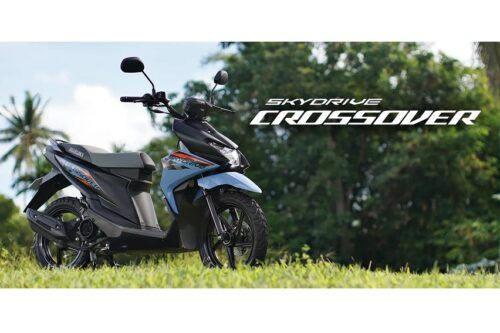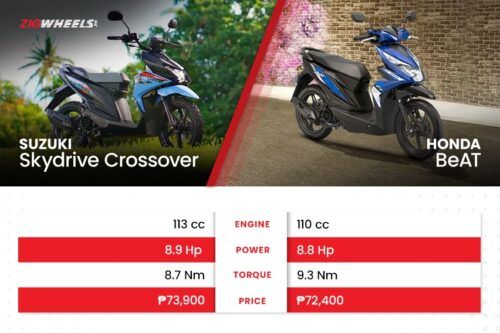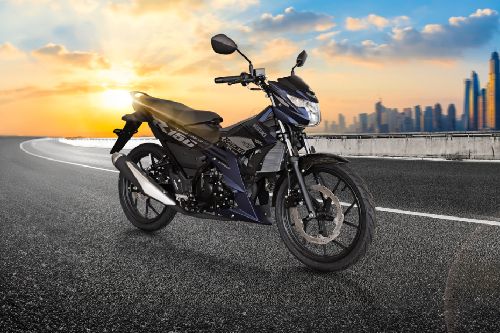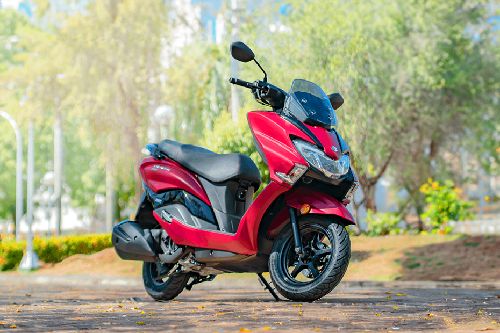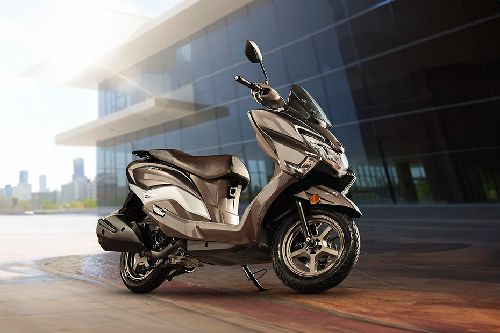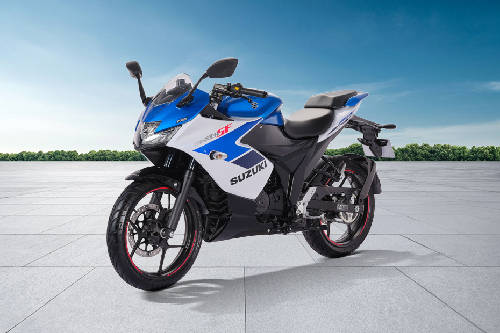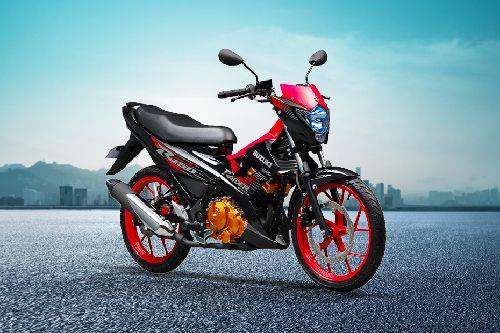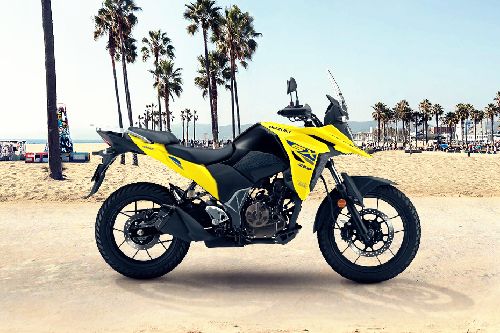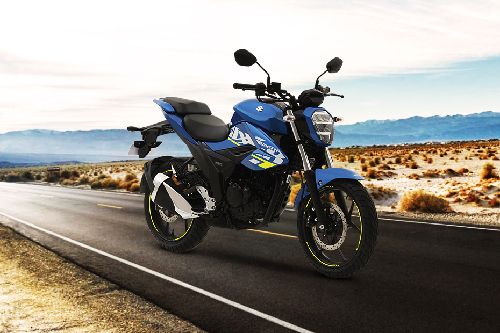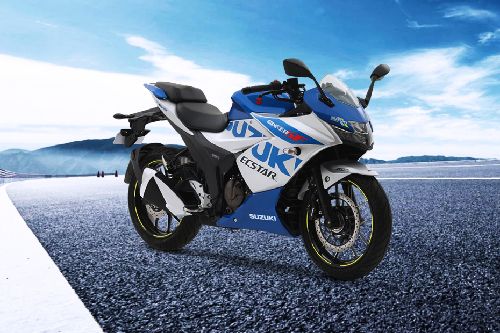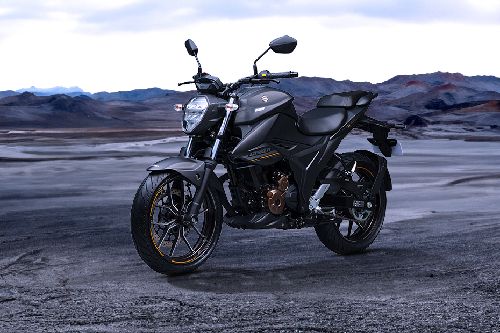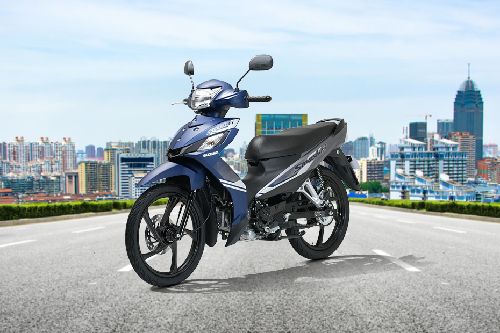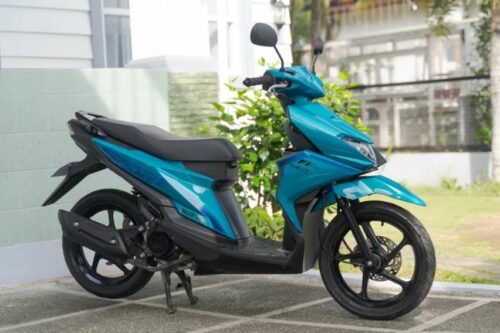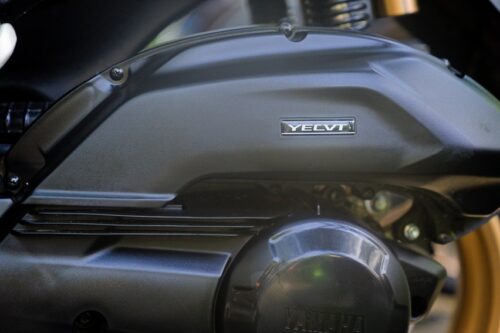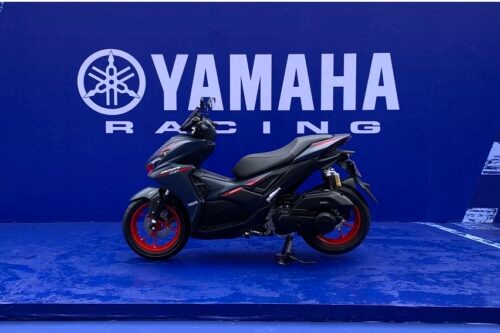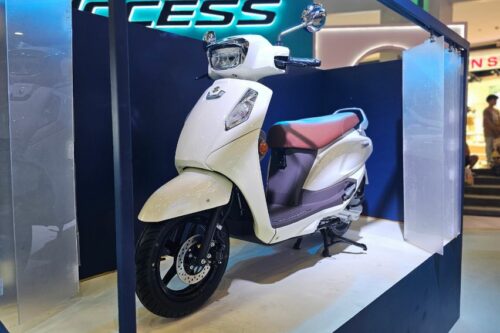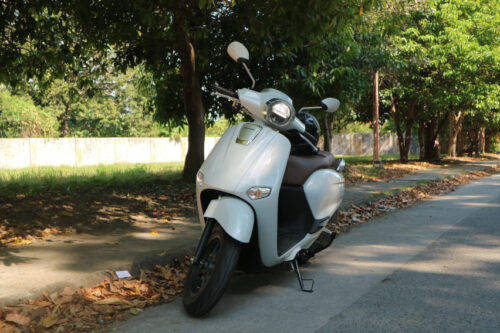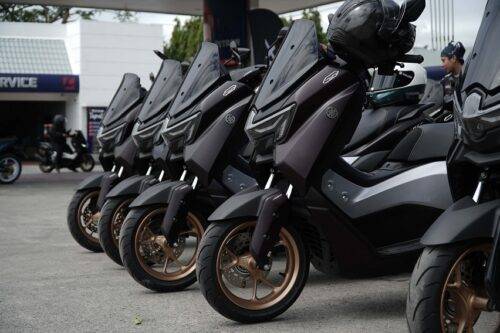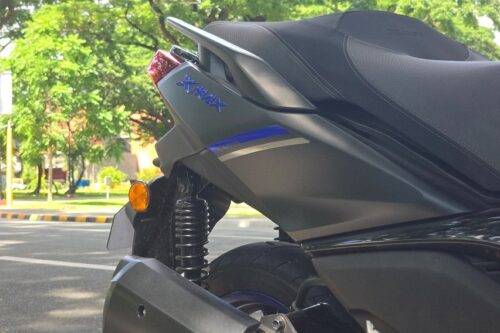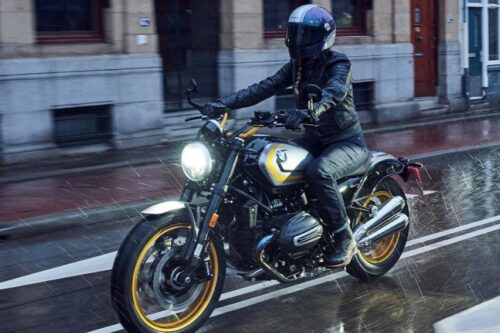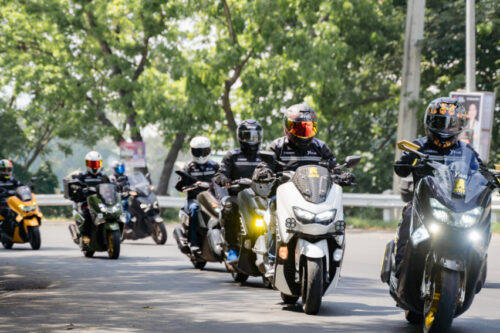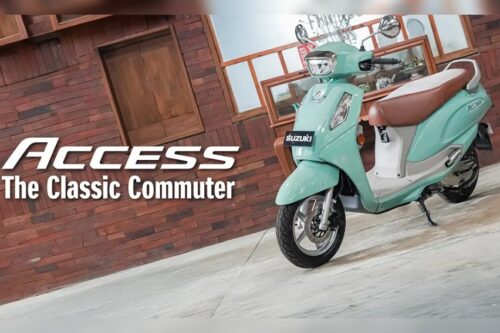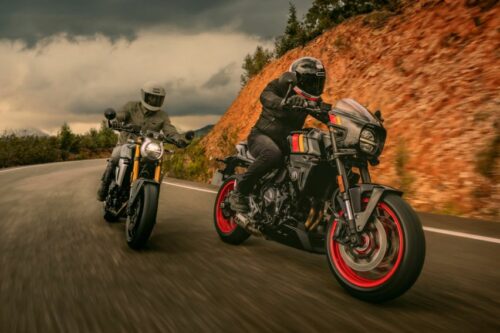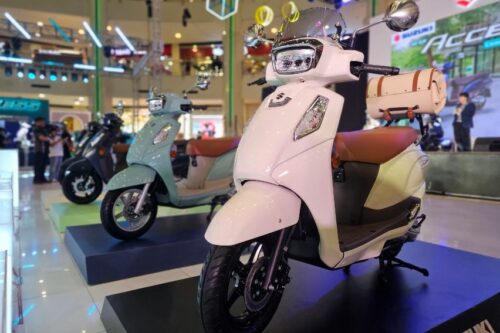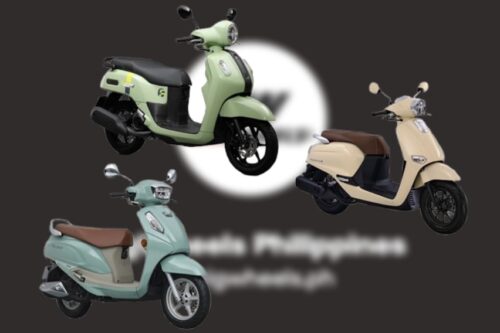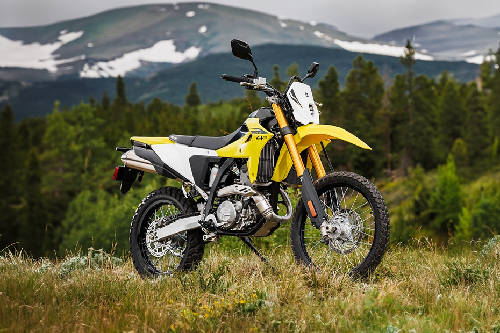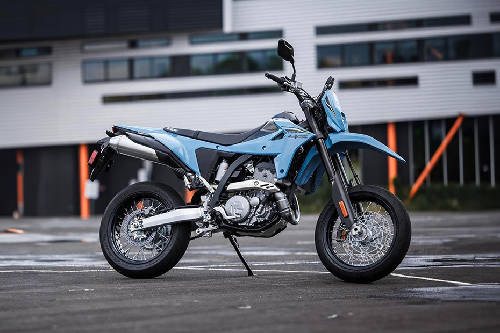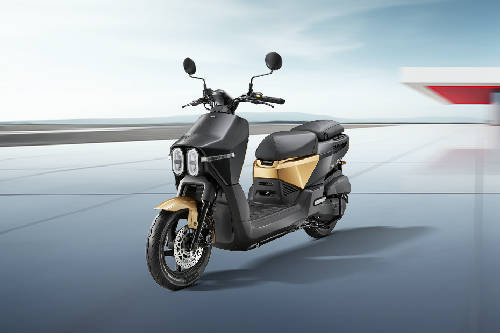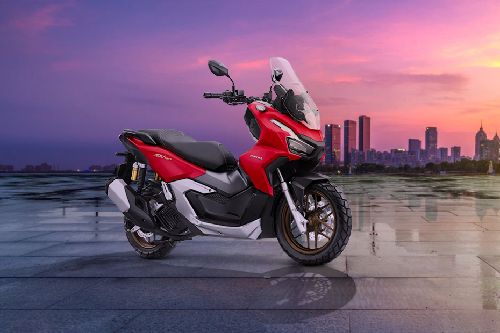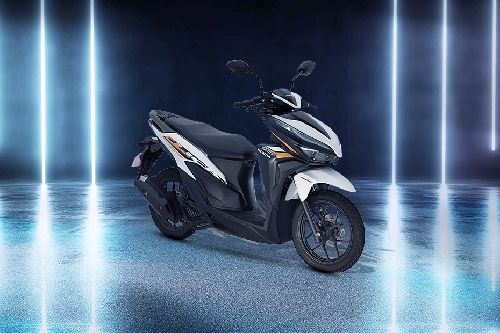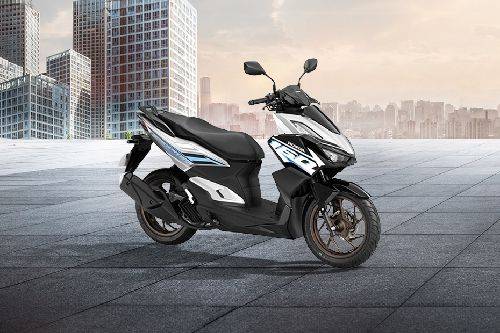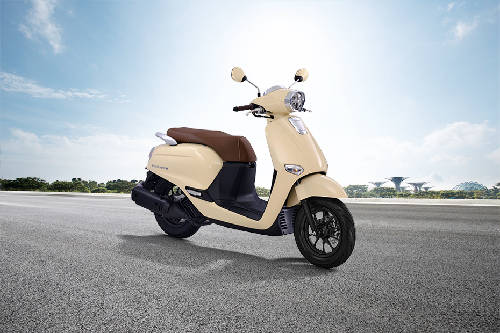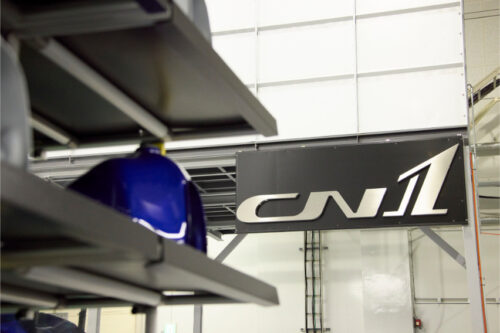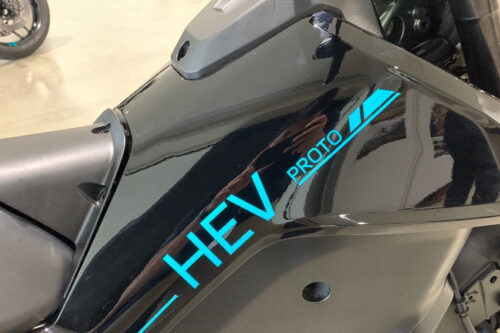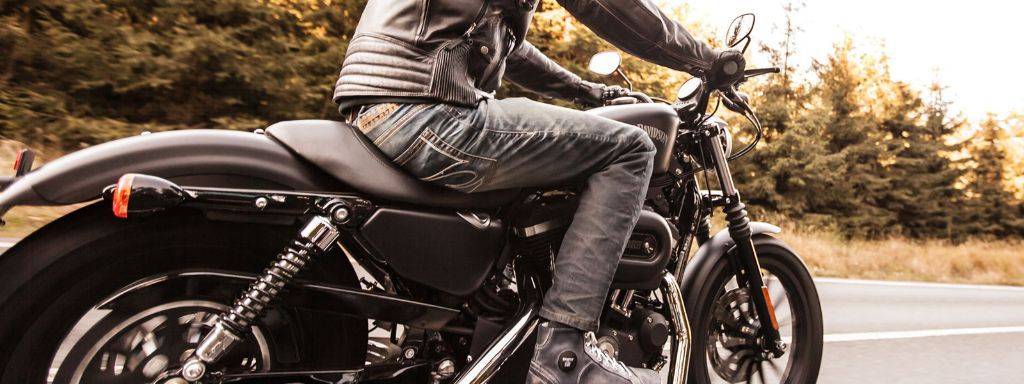Suzuki Skydrive Crossover vs. Skydrive Sport: Battle of the scooters
Find which ride suits you best in this battle between the Suzuki Skydrive Crossover and Skydrive Sport
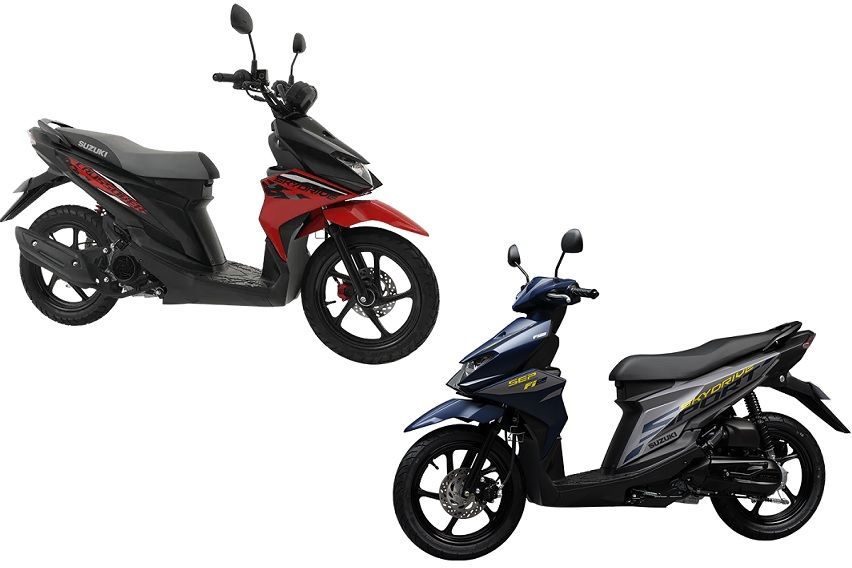
The Suzuki Skydrive has been one of the more popular nameplates from the Japanese motorcycle company. To date, the two available models under the said moniker include the Skydrive Crossover and the Skydrive Sport.
KEY TAKEAWAYS
How much is the Suzuki Skydrive Crossover?
The Suzuki Skydrive Crossover is priced at P73,900.What is the price of the Suzuki Skydrive Sport?
The Suzuki Skydrive Sport has a price tag of P71,900.Interested to see which of the two best suits your budget, style, and riding needs? Join us in this “battle of the scooters” to find out.
Body, appearance
First up is the Suzuki Skydrive Crossover. The scooter is touted as a dual-purpose motorcycle ideal for riding on both paved and unpaved roads.
At the front, it gets a naked handlebar without any cowling or windshield. Bare is its instrument cluster that is accompanied only by the two side mirrors. Below is a sharp front fascia slapped with a headlamp with integrated turn signals.
It also gets a tapered front fender that houses its oil-damped telescopic front shock absorbers and 14-inch wheel with 80/90 tires.
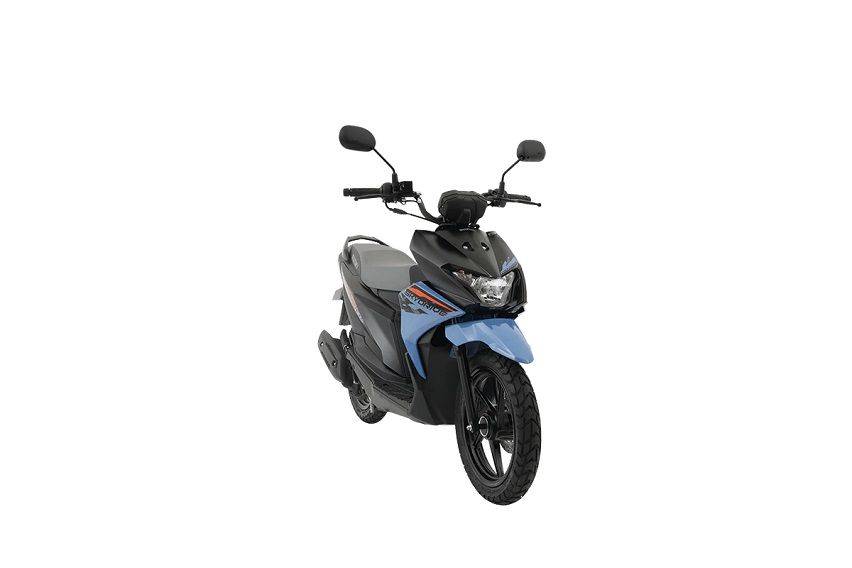
Like its fascia, the flanks of the Suzuki Skydrive Crossover are somewhat minimal — decorated only by panels with a sharp angular design. From this angle, one can notice its sleek saddle, flat engine cover, decent-sized step board, metal foot pegs, continuously variable transmission (CVT) cover, and striking red brake caliper and rear shock absorber. It also dons an exhaust system with a stylish cover.
At the back, the Suzuki Skydrive Crossover gets a solid grab bar, a cluster of lights that combines the taillamp with the turn signals, and an extended rear fender. Under which is the aforementioned rear mono shock, and a 14-inch wheel with 90/90 tires.
On the other hand, the Suzuki Skydrive Sport gets a little more fairings, which adds to its sporty design.
The meter panel of the scooter is housed in a pointed-looking cowling, where the two side mirrors sit atop. Below is a panel and a lighting setup similar to that of the aforementioned Suzuki Skydrive Crossover. Likewise, the suspension, wheel, and tire are also the same.
Its side profile is almost virtually identical, but one may notice the side panels that cover almost the entirety of the scooter — extending from the flat engine cover to its tail. Features like a metal foot peg, wide step board, and a seat with ample cushioning are also found here. It even sports the same CVT cover and exhaust cover.
Suzuki also made the rear end of the Skydrive Sport similar to the Skydrive Crossover. On that note, we can find the same light cluster, grab bar, and rear fender. The rear suspension, wheel, and tire are also the same size as the latter.
Overall, despite the minor changes of the two motorcycles, their appeal and vibe drastically differ. And since they offer design elements from both ends of the spectrum, we will call this round a tie.
Engine, power
Both the Suzuki Skydrive Crossover and Skydrive Sport are powered by 113 cubic centimeter engines mated to a CVT. The two powerplants are four-stroke, one-cylinder, single overhead camshaft, two-valve mills and have the same bore and stroke figures.
They also are fuel-injected and air-cooled, making them efficient engines for daily use.
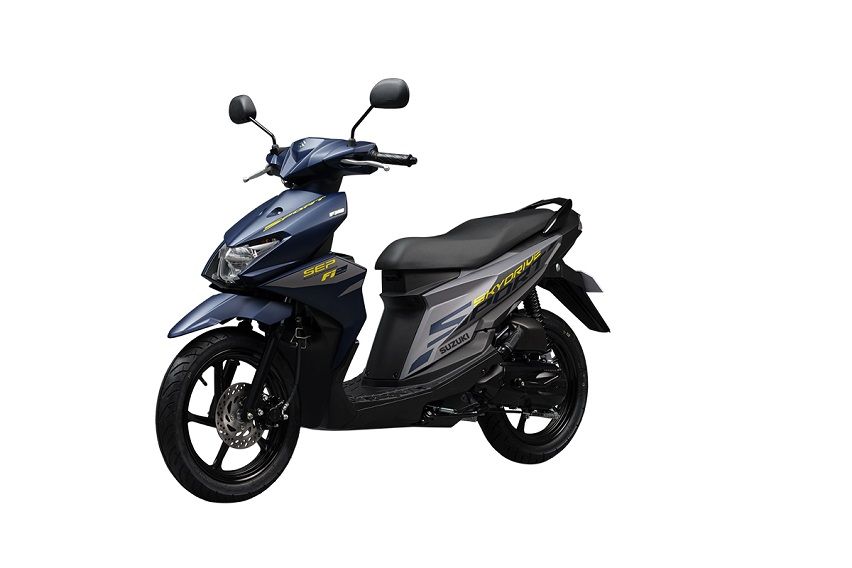
Nevertheless, the Suzuki Skydrive Crossover produces more torque than the Skydrive Sport. The former makes 8.7 Newton-meters (Nm) of pulling power while the latter makes just 8.5Nm. They’re similar in terms of overall power production at 8.9 horsepower each.
So, we will give this round to the Suzuki Skydrive Crossover for making just slightly more torque than its sporty brother.
Other features
The Suzuki Skydrive Crossover is equipped with a 3.6-liter fuel tank and a 4.5-liter under seat compartment, the instrument panel features digital display, while the wheels get tubeless semi-block tires.
Meanwhile, the Suzuki Skydrive Sport gets a more aerodynamic set of fairings, an analog instrument panel, multi-functional pockets, and standard road tires.
Variants, pricing
- Suzuki Skydrive Crossover: P73,900
- Suzuki Skydrive Sport: P71,900
Verdict
The winner of this matchup is the Suzuki Skydrive Crossover. Not only is it a dual-use scooter but it is also capable of slightly producing more torque than its sportier stablemate.
Nevertheless, the Suzuki Skydrive Sport is still a good pick, especially for those who want a more affordable scooter.
Photos from Suzuki Philippines
Also read:
Suzuki Zamboanga, a new 3S dealership is up & running
Hidilyn Diaz is awarded a brand-new Suzuki Skydrive Sport scooter
Suzuki Skydrive Crossover vs Suzuki Skydrive Sport Comparison
Suzuki Skydrive Crossover Related Stories
- Featured Stories
Suzuki Motorcycle Models
Don't Miss
Trending & Fresh Updates
- Latest
- Popular
You might also be interested in
- News
- Featured Stories
Suzuki Featured Motorcycles
- Latest
- Upcoming
- Popular
Compare & Recommended
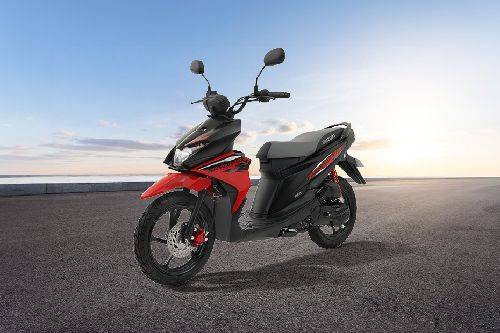
|
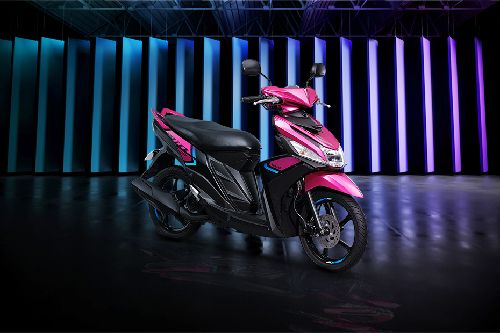
|
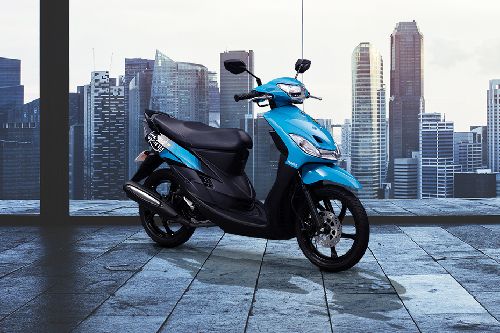
|
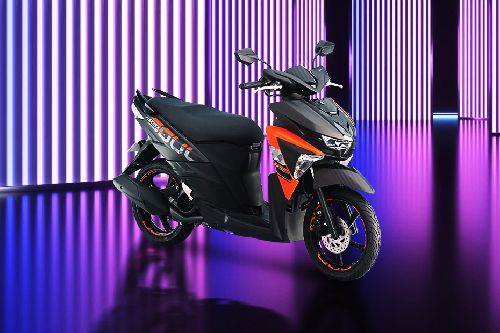
|
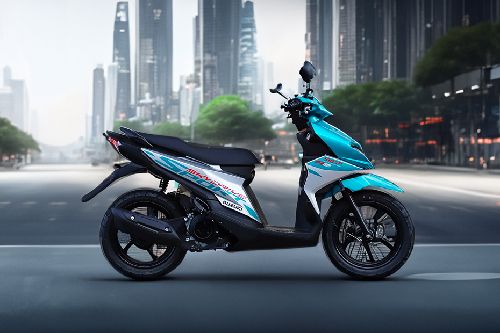
|
|
Engine
113
|
125
|
114
|
125
|
113
|
|
Power
8.9
|
9.3
|
7.6
|
9.3
|
8.9
|
|
Maximum Torque
8.7 Nm
|
9.6 Nm
|
7.2 Nm
|
9.6 Nm
|
8.5 Nm
|
|
Engine Type
Single Cylinder, 4-Stroke, 2-Valve, Air-Cooled, SOHC Engine
|
Single Cylinder, 4-Stroke, 2-Valve, Air-Cooled, SOHC Engine
|
Single Cylinder, 4-Stroke, 2-Valve, Air-Cooled, SOHC Engine
|
Single Cylinder, 4-Stroke, 2-Valve, Air-Cooled, SOHC Engine
|
Single Cylinder, 4-Stroke, 2-Valve, Air-Cooled, SOHC Engine
|
|
No. Of Cylinder
1
|
1
|
1
|
1
|
1
|
|
|
Trending Scooter
- Latest
- Popular
Suzuki Skydrive Crossover Motorcycle Articles From Carmudi
- journal
- advice
- insurance
Compare
You can add 3 variants maximum*- Brand
- Model
- Variant



